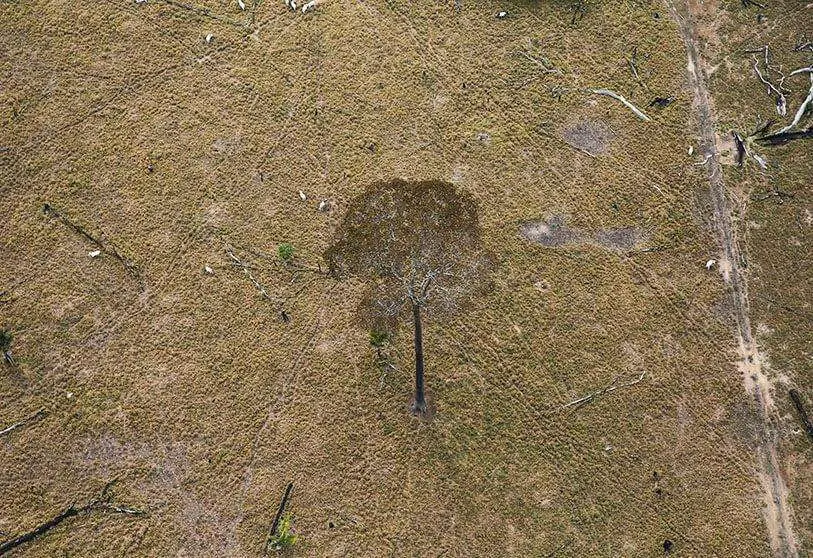"Ecocide", a real response to a real problem

In 1972, the then Prime Minister of Sweden, Olof Palme, accused the US government of committing ecocide during the Vietnam War by using a herbicide, known as "agent orange", to wipe out vast fields, leaving them completely infertile. The term ecocide was not contemplated under international law, and so his accusations fell on deaf ears. Because it was not, it was not even defined. Until now.
A group of renowned international jurists have managed, after much deliberation, to agree on a legal definition for the concept of ecocide. It would qualify as such "any unlawful or arbitrary act perpetrated in the knowledge that it is highly likely to cause serious, widespread or long-lasting damage to the environment". Arbitrary would be defined as "an act of reckless disregard of damage that would be manifestly excessive in relation to the anticipated social or economic advantage". Environmental disasters such as the oil spill in the Gulf of Mexico in 2010 or the pollution of the Niger Delta could fall under this definition. The group, made up of twelve experts in international law, considers that the time has come for ecocide to be considered a crime, and even proposes that it should be a matter for the International Criminal Court to judge.
The International Criminal Court (ICC), based in The Hague, judges the most serious crimes under international law: genocide, crimes against humanity, war crimes and aggression. These could be joined by a fifth. While this debate may seem novel, it is not. In the 1970s, a Convention on Ecocide was introduced at the United Nations. In the 1980s it was on the international agenda, although no progress was made. It was finally dismissed in 1996, during the negotiations to draft the Rome Statute, the founding document of the ICC. In these negotiations, the possibility of introducing ecocide as one of the crimes to be tried by the Court was discussed, but the proposal was not taken forward.
However, in recent years, and especially in recent months, the inclusion of ecocide as a crime under international law has been gaining support. Earlier this year, Brazilian indigenous leaders and human rights organisations urged the Court to investigate Brazilian Prime Minister Jair Bolsonaro. He is accused of endangering and destroying the natural habitats of indigenous communities after allowing indiscriminate logging in the Amazon rainforest. The year Bolsonaro took office, encroachment on indigenous territories increased by 135%. Since then, he has increased deforestation in Brazil by 50%. However, due to the failure to include the crime of ecocide in the Rome Statute, the Brazilian leader's actions cannot be brought to justice.
Concern about climate change and care for the planet has been growing in recent times, especially thanks to social movements such as Fridays for Future or personalities such as Greta Thunberg, who have managed to put the issue in the media spotlight. But the debate on ecocide would not be such without the contribution of Polly Higgins, the driving force behind the "Stop Ecocide" campaign. In 2010, Higgins came up with a definition of ecocide that made a big impact and was even repeated by Pope Francis in his call in 2019 to recognise ecocide as a crime against nature.
Achieving international legal protection for crimes against the environment would go a step further in recognising the importance of climate change, but it would be far from enough. The world's biggest polluter, China, is not a signatory to the Rome Statute. Neither are India, Pakistan, Indonesia or Saudi Arabia, among many others. The United States, which follows the Asian giant in CO2 emissions, is, but has not ratified it. Therefore, these countries are not under the jurisdiction of the Court, which would limit its capacity to bring to justice some flagrant cases of ecocide.
Another element to bear in mind is that the ICC can only prosecute natural persons, not countries or companies. Most pollution cases, for example, are caused by industries. While these could not be brought before the Court, the persons directly responsible for them could, as with war crimes: a soldier, or an army, is exempt from prosecution, while it is the high commanders, responsible for giving direct orders, who carry the penalties.
Although there are still many elements to be defined, and there is still no consensus for the inclusion of this crime in the Rome Statute, it is unquestionable that the mere discussion of this possibility represents a step forward in terms of how the relationship between humans and nature is perceived. The adoption of ecocide as an international crime would represent a paradigm shift with respect to the morality of environmental crime. It would not only be a morally reprehensible action, but would also be prohibited, a sign that the international community is willing to give a forceful response to an urgent problem.

